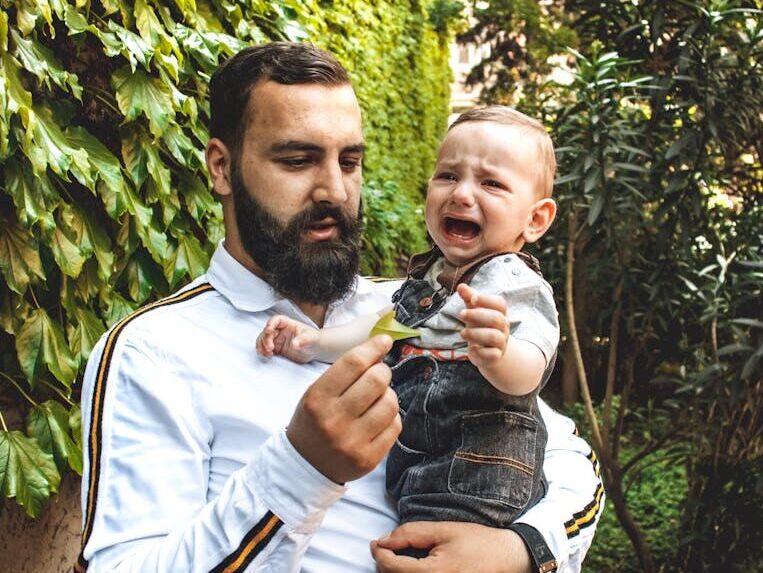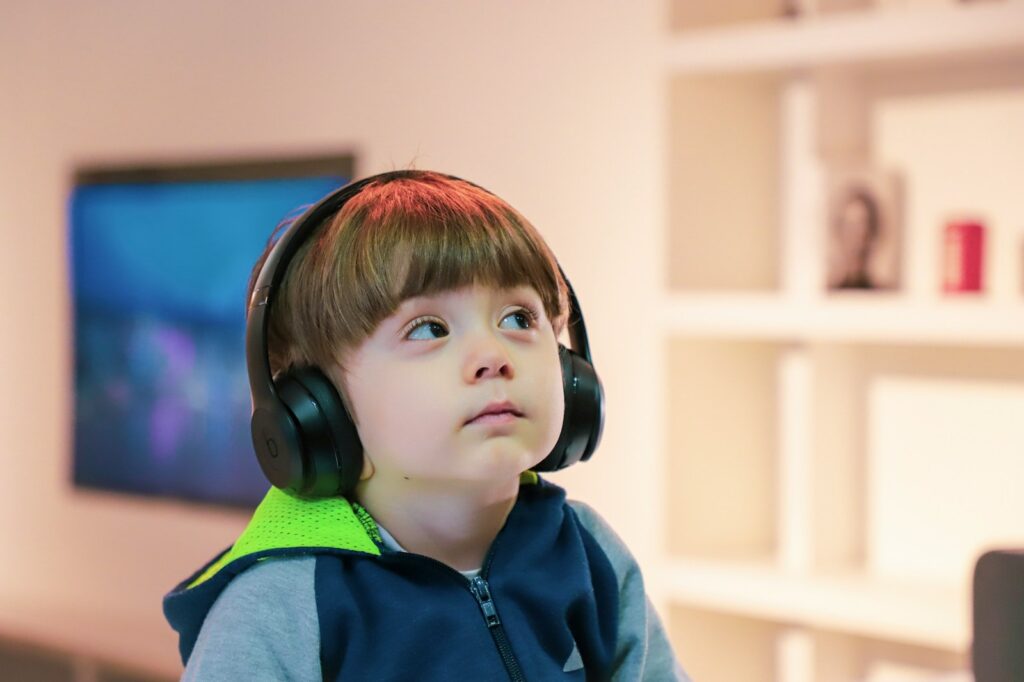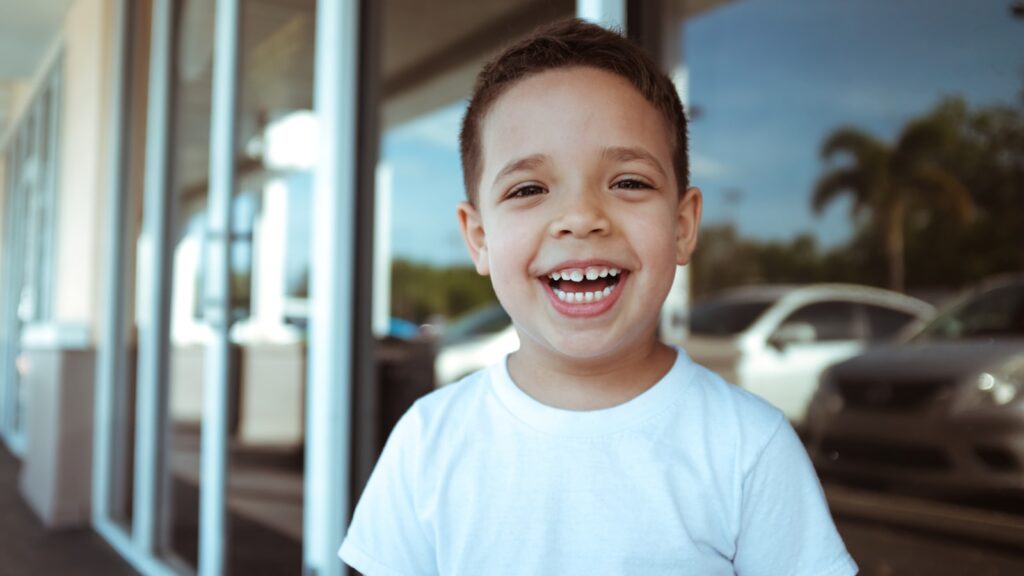Lifestyle
30 Signs You Might Be a Toxic Parent Without Realizing It

Most parents want the best for their children, but sometimes, well-intended actions can have unintended consequences. Toxic parenting isn’t always about extreme neglect or abuse—it can be subtle behaviors that gradually harm a child’s emotional well-being. Here are 30 signs you might be a toxic parent without realizing it.
You Dismiss Your Child’s Emotions

Telling your child to “stop crying” or “toughen up” might seem like a way to help them develop resilience, but it actuallyteaches them to suppress their emotions. When children aren’t allowed to express sadness, frustration, or fear, they may struggle with emotional regulation and find it difficult to process their feelings in a healthy way.
You Compare Them to Other Kids

Saying things like “Why can’t you be more like your sibling?” or “Look at how well your friend behaves” can damage your child’s self-esteem and create unnecessary pressure. Every child has unique strengths and weaknesses, and constantly measuring them against others can lead to feelings of inadequacy, resentment, and self-doubt.
You Use Guilt to Control Them

If you frequently say things like, “After everything I’ve done for you, this is how you repay me?” you are making your child feel guilty for having their own thoughts, needs, and boundaries. This creates an unhealthy dynamic where children feel obligated to please their parents, often at the cost of their own well-being.
You Expect Perfection

Encouraging children to do their best is healthy, but setting unrealistic expectations can create anxiety and fear of failure. If your child feels that nothing they do is ever good enough, they may grow up with low self-worth, constantly seeking validation or avoiding challenges altogether to escape potential disappointment.
You Dismiss Their Opinions

If you frequently say, “Because I said so,” or refuse to engage in discussions with your child, you’re teaching them that their opinions don’t matter. While parents should maintain authority, children also need to feel heard and respected. Dismissing their thoughts can make them hesitant to express themselves in the future.
You Make Everything About You

If you constantly shift conversations back to your own struggles or emotions when your child shares their feelings, you’re teaching them that their needs come second. While parents also have challenges, children shouldn’t have to carry the burden of comforting or validating their parents’ feelings at their own emotional expense.
You Control Their Choices

Micromanaging every aspect of your child’s life—what they wear, who they befriend, what hobbies they pursue—can make them feel powerless. While guidance is important, children need opportunities to make decisions and learn from their experiences. Over-controlling parenting can lead to dependency issues and difficulty making independent choices as adults.
You Use Harsh Criticism Instead of Constructive Feedback

Telling your child, “You’re so lazy” or “You’ll never be good at this,” doesn’t encourage improvement; it damages their confidence. Instead of tearing them down, offer constructive criticism, such as “I see you’re struggling with this—how can we work together to improve?” Positive reinforcement fosters growth without diminishing self-worth.
You Ignore Boundaries

Forcing your child to hug relatives, reading their diary, or barging into their room without knocking teaches them that their personal space and boundaries don’t matter. Respecting boundaries helps children develop self-respect and the ability to set limits in future relationships, which is crucial for their emotional well-being.
You Make Them Responsible for Your Happiness

If your child feels like they need to behave a certain way to keep you happy, they may develop a people-pleasing mentality, sacrificing their own needs to avoid upsetting others. Saying things like, “You’re the only thing that makes me happy,” places unfair emotional responsibility on them and can cause long-term stress.
You Shame Them for Making Mistakes

Calling your child “stupid” or overreacting to small mistakes can make them fear failure. Mistakes are a natural part of learning, and children need reassurance that errors don’t define their worth. If they grow up afraid of making mistakes, they may become overly cautious or avoid trying new things altogether.
You Dismiss Their Interests as Unimportant

If your child is passionate about something—whether it’s video games, art, or a specific hobby—and you mock or dismiss it, they may feel invalidated. Even if their interests seem trivial to you, they are meaningful to them. Showing support builds their confidence and encourages them to pursue what makes them happy.
You Frequently Yell Instead of Communicating

Yelling may get immediate compliance, but it teaches children to fear you rather than understand what they did wrong. Constantly being yelled at can make children anxious, defensive, or emotionally distant. Healthy communication involves explaining rules calmly and allowing children to understand consequences without intimidation.
You Don’t Apologize When You’re Wrong

Parents make mistakes, too, but refusing to apologize teaches children that accountability is only for them. If you yell unfairly or react harshly, admitting you were wrong shows them that apologizing is a strength, not a weakness. This helps them learn healthy conflict resolution and emotional responsibility.
You Use Love as a Reward

If you only show affection when your child behaves how you want, they may develop an insecure attachment style. They should feel loved unconditionally, not just when they achieve something or act in a way that pleases you. Conditional love can lead to self-worth issues and difficulty forming healthy relationships later in life.
You Hold Grudges Against Your Child

Bringing up past mistakes repeatedly or reminding your child of every time they disappointed you can make them feel permanently judged. Children need the space to grow and improve without feeling like their past defines them. Holding grudges damages trust and prevents them from feeling emotionally safe with you.
You Dismiss Their Struggles as “Not Real Problems”

Telling your child, “You have no reason to be stressed,” invalidates their experiences. What may seem small to you can feel overwhelming to them. Recognizing their emotions and guiding them through problem-solving helps them build emotional resilience instead of feeling like their feelings don’t matter.
You Play the Victim in Every Argument

If you always turn conflicts into “Look how hard I have it because of you,” your child may start suppressing their feelings to avoid making you upset. Playing the victim prevents open communication and shifts responsibility away from addressing real issues in a healthy, solution-focused way.
You Use Fear to Control Behavior

Threatening extreme consequences—like kicking them out, taking away everything they love, or saying, “You’ll regret this when I’m gone”—may make a child comply in the moment, but it fosters resentment, fear, and anxiety. Children should be guided by understanding, not emotional manipulation.
You Minimize Their Achievements

If your child proudly shows you something they worked hard on, only to be met with indifference or criticism, they may stop sharing their accomplishments altogether. Even small achievements deserve recognition. Celebrating their efforts, rather than just results, encourages them to stay motivated and believe in their abilities.
You Force Your Child to Suppress Their Anger

Teaching your child that anger is “bad” instead of helping them process it in a healthy way can lead to emotional repression. If children don’t learn to manage anger properly, they may bottle up their emotions, leading to outbursts, passive-aggressiveness, or difficulty expressing frustration in adulthood.
You Make Fun of Their Insecurities

Joking about your child’s weight, looks, intelligence, or social skills may seem harmless, but it can leave deep emotional scars. Even light teasing can make children feel self-conscious and insecure, leading to body image issues, low self-esteem, or social anxiety that lasts into adulthood.
You Control Their Friendships

Parents naturally want their children to be around good influences, but forbidding certain friendships without explanation can create rebellion or social isolation. Instead of outright banning friendships, teaching children how to recognize healthy and toxic relationships allows them to make informed choices without feeling overly controlled.
You Dismiss Their Mental Health Struggles

Saying things like, “You’re just being dramatic,” when a child expresses sadness, stress, or anxiety discourages them from seeking help. Mental health is just as important as physical health. Children need a safe space to talk about their struggles and be met with empathy rather than judgment.
You Expect Them to Take Care of You Emotionally

Children should not be their parents’ therapists, emotional support systems, or problem solvers. If a child feels responsible for managing their parent’s emotions, they may neglect their own needs and grow up struggling with codependency or people-pleasing behaviors. Parents should seek support from other adults, not their children.
You Use Your Authority to Silence Them

Saying “Because I said so” or “You don’t get a say in this” might work short-term, but it prevents children from developing critical thinking and confidence in expressing their opinions. Parents should encourage discussions and allow children to voice concerns, even if they ultimately still make the final decision.
You Threaten to Leave or Kick Them Out

Telling your child, “If you don’t like my rules, you can leave,” or “I should have never had kids,” creates deep emotional wounds. This kind of threat can lead to extreme anxiety and a fear of abandonment. Even in moments of frustration, parents should be mindful of the words they use.
You Make Them Feel Guilty for Growing Up

If you constantly tell your child, “You used to love spending time with me” or “You never need me anymore,” it can make them feel guilty for becoming independent. Children are supposed to grow and build their own lives. Making them feel bad for wanting freedom can damage their confidence.
You Micromanage Every Part of Their Life

A child who is never allowed to make decisions for themselves may struggle with independence as an adult. Parents who dictate what their child should study, where they should live, and even who they should marry often create resentment and anxiety. Guidance is important, but children must also learn self-reliance.
You Refuse to Change or Reflect on Your Parenting

Saying, “This is how I was raised, and I turned out fine,” dismisses the reality that parenting should evolve with time. Every generation learns more about emotional intelligence and mental health. Refusing to acknowledge mistakes or grow as a parent can lead to strained relationships with your child.

